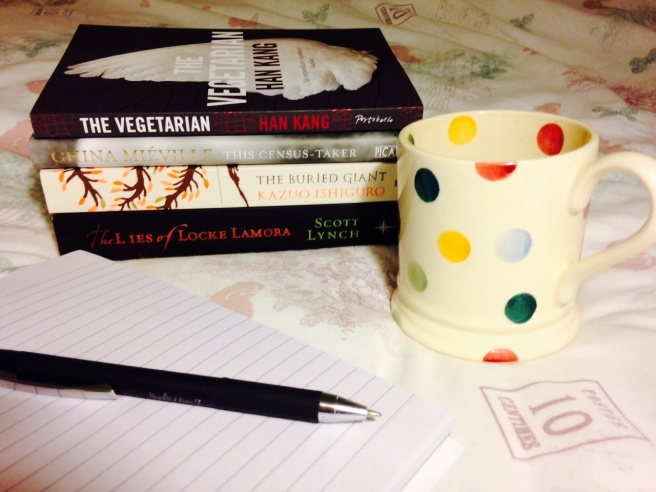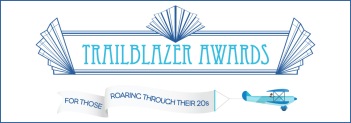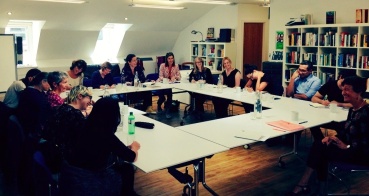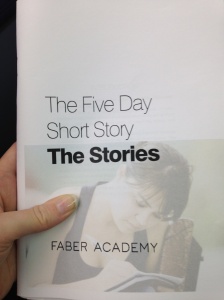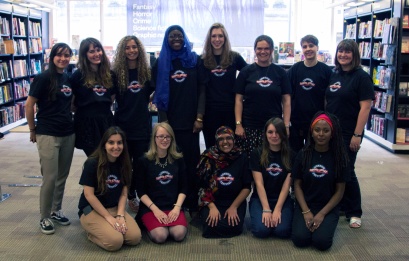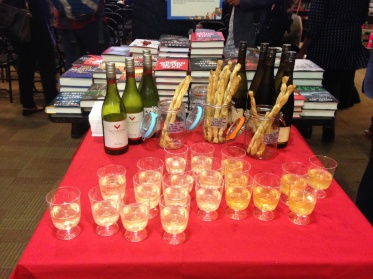It’s that time of year again! With London Book Fair kicking off tomorrow, here’s my round-up of advice to help you survive one of the busiest weeks in the publishing calendar…

1) Wear comfy shoes
This may sound pretty basic, but trust me, you’ll be grateful for this tip after spending hours walking for miles around all the exhibitors’ stands across the three vast floors of the Olympia.
2) Plan plan plan
Did I mention plan? With such a hectic programme of events, it’s definitely worth having in mind what your must-sees are before turning up. But above all, plan to leave some time when you have nothing planned! That way you can be a bit spontaneous if someone recommends an unmissable thing to do at the last-minute.
3) Download the LBF app
The app was worth downloading last year, as I could save my fave talks into an online diary, and use it to schedule meetings with other delegates too. Just don’t forget to print a map off as well, in case wi-fi decides to play up!
4) Pack a bottle of water (or two) and lunch
Last year, I found myself with about ten minutes to get from a translation panel event to a literary festival talk three floors above. Luckily, on the advice of an LBF veteran, I’d popped a pre-made bagel in my handbag, to avoid missing the event while queuing for food and beverages. Also, it’s surprisingly thirsty work strolling around stalls and chatting to a bunch of literary types…
5) Bring a phone charger
Ok, this might be stating the obvious, but I saw more than a couple of distressed publishing types desperately trying to make calls on a drained battery. If you’re fortunate enough to see a spare socket (I found a couple of quiet ones on level 3), then pounce on it and make the most.
6) Don’t miss the Author HQ
Authors are at the heart of the publishing industry, so it’s no surprise that LBF has a range of must-see talks, seminars and events aimed at writers in the Author HQ.
7) Avoid the lifts
It can be tempting to take the lifts after a knackering day on your feet, but it’s not the wait as hundreds of people try to use them daily (whilst they argue with the lift operator about whether it should go up or down). Just put your best foot forward and take the stairs.
8) Get tweeting
Who knows what bigwig from the literary world could end up retweeting or favouriting one of your pics? Plus you’ll get a bunch more followers if you keep up with the goings on using the LBF hashtag (#LBF17, if you’re wondering). It’s a good way to remember what you got up to and who you connected when you look back in a few months time too. Make the most of online and face to face networking.
9) Remember business cards
This might seem a bit formal, but do you really want to scrawl your name illegibly on a torn notebook page when you’ve finally got a moment with that sought-after agent/ publisher/ author (delete as appropriate)? Didn’t think so.
10) Embrace getting lost
Let’s face it, in a venue the size of the Olympia, it’s impossible not to. You might get pointed in the wrong direction a few times too. Use it as an excuse to see who (or what) you might stumble upon on your travels.
11) Don’t mistake it for a careers fair
This isn’t the place to be waving CVs under harangued publicist’s noses, or dumping a manuscript in front of an agent in the middle of an important rights meetings. They’re here to do business, not get you a job or book deal! By all means network, drop people a tweet, and follows things up with emails where appropriate. But try not to be pushy to the point it’s just annoying, and pick your moment for those job approaches…
12) Have fun!
Some people will inevitably be sweating over make or break book deals. But it’s worth remembering this is also a great day out surrounded by like-minded people who are passionate about publishing too. So however busy you are, take a moment to enjoy it.
Hope you liked these tips, as inspired by previous LBF experiences. Feel free to share some of your own suggestions in the comments below!

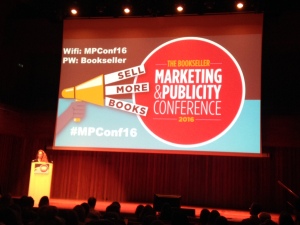
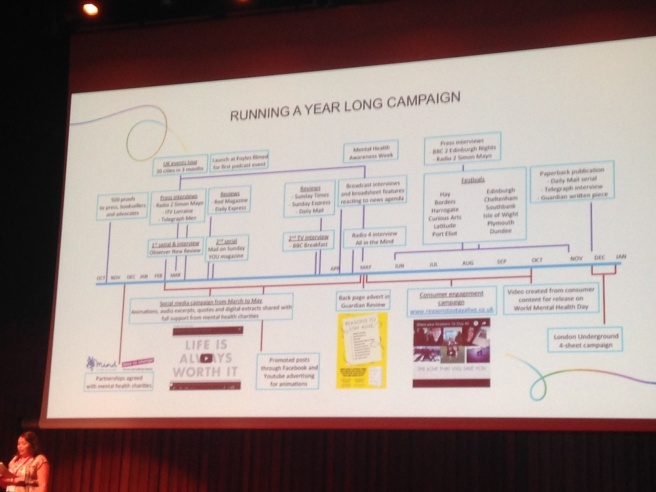
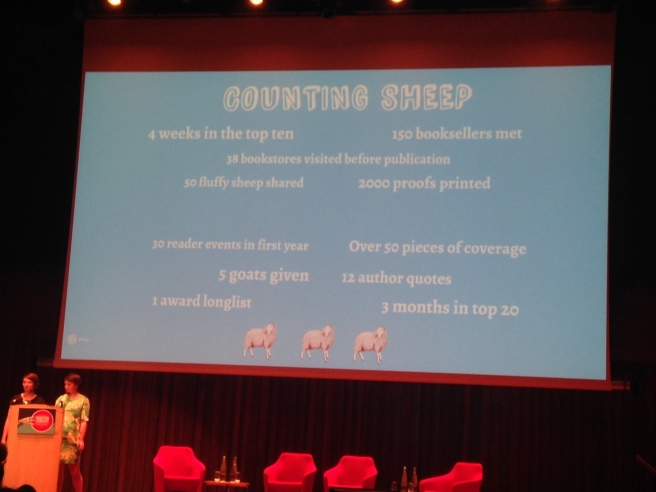
 The countdown to one of the biggest publishing events in the global calendar begins. With just 7 days to go until London Book Fair 2016 kicks off, here’s my round-up of advice for authors and publishing bods alike, not only about how to survive the fair but how to enjoy it too!
The countdown to one of the biggest publishing events in the global calendar begins. With just 7 days to go until London Book Fair 2016 kicks off, here’s my round-up of advice for authors and publishing bods alike, not only about how to survive the fair but how to enjoy it too!
